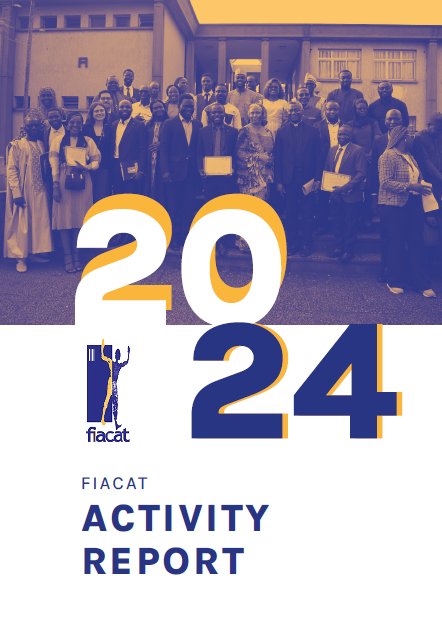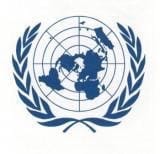19th session of the Human Rights Council’s Universal Periodic Review
The Working Group of the Council of Human Rights Group on the Universal Periodic Review held its nineteenth session from 28 April to 9 May 2014 to examine the situation of human rights in fourteen countries: Norway, Albania, Democratic Republic of Congo, Côte d'Ivoire, Portugal, Bhutan, Costa Rica, Brunei, Ethiopia, Qatar, Nicaragua, Democratic People's Republic of Korea, Dominica.
An ACAT exist in Democratic Republic of Congo and in Côte d'Ivoire. FIACAT therefore particularly following these reviews. FIACAT in collaboration with these ACAT has contributed to this process by submitting alternative reports
- FIACAT and ACAT RDC concerns
To go further (official UN's document)
ACAT Côte d’Ivoire's advocacy mission in Geneva for the 19th session of the Universal Periodic Review
The President of ACAT Côte d’Ivoire, accompanied by the FIACAT Representative to the United Nations, was in Geneva from 6 to 11 April to take part in a pre -session for UPR advocacy organised by one of FIACAT's partners, the UPR Info association. This pre -session provides a forum for civil society to discuss its concerns with the Geneva -based permanent missions taking part in the event, prior to submitting them officially.
The recommendations presented to the audience related mainly to torture and other cruel, inhuman or degrading treatment, detention conditions, summary executions, abolition of the death penalty, forced disappearances and judicial guarantees.
Training in the UPR process
To improve his mastery of this human rights protection mechanism, the ACAT Côte d’Ivoire Representative received training in the United Nations UPR process.
The training centred around two major topics:
- Advocacy for the UPR
- Follow -up to the UPR.
The training set up by UPR Info has helped develop the capacities of human rights defenders from Côte d’Ivoire (including the President of the independent National Commission on Human Rights) and to clarify the rôle of civil society in this mechanism, the importance of which was emphasised. The UPR is an additional lever acting as a link between the recommendations and other treaty bodies (Committee against Torture, Human Rights Committee, etc.) with which the ACATs are involved. For the follow -up, a critical phase in the process, tools have been made available to civil society members. By closely monitoring the whole, the NGOs are in a position to persuade the State to honour its commitments and accept the recommendations. A joint follow -up strategy is to be set up involving the various members of Ivorian civil society present, with a view to greater efficiency.
Meeting with representatives of the Office of the United Nations High Commissioner for Human Rights and FIACAT partners
In order to address the concerns of the ACAT Côte d’Ivoire representative, talks were held with representatives of the Geneva -based permanent missions (during the pre -session, in particular representatives of Togo and of the Holy See), the person responsible for the country (Côte d’Ivoire) at the Office of the High Commissioner for Human Rights (OHCHR), and the OHCHR official responsible for Côte d’Ivoire who will assist the State in drafting the UPR Working Group's report. In preparation for the next review before the United Nations Human Rights Committee (HRC), which will take place in 2015 and for which ACAT Côte d’Ivoire and FIACAT will submit a report, a meeting was organised with the Committee Secretariat. This meeting provided an opportunity for discussion of ACAT Côte d’Ivoire's concerns about implementation of the International Covenant on Civil and Political Rights (ICCPR), more especially the flagrant breaches of the principle of freedom of assembly and association in the country. A meeting with the secretariat of the Committee Against Torture (CAT) aired the ACAT's concerns regarding acts of torture perpetrated in Côte d’Ivoire. The ACAT thus became a privileged partner of the Committee secretariat, bearing in mind a possible review of the State. A meeting was also held with the independent expert on the human rights situation in Côte d’Ivoire, Mr Doudou Diène, who presents to the Human Rights Council an annual report on the human rights situation in the country, taking into account the concerns of human rights defenders and of civil society members active in Côte d’Ivoire.
Finally, to help boost the network's activities, a meeting was organised between the Representative of ACAT Côte d’Ivoire and the members of ACAT Switzerland, which had chosen Côte d'Ivoire for the focus of its Good Friday campaign , covering the whole of the ACAT network. Its objective had been to "urge the President of the Ivorian Republic to define torture and to make it a crime in Ivorian criminal legislation and to prosecute those who commit acts of torture".




